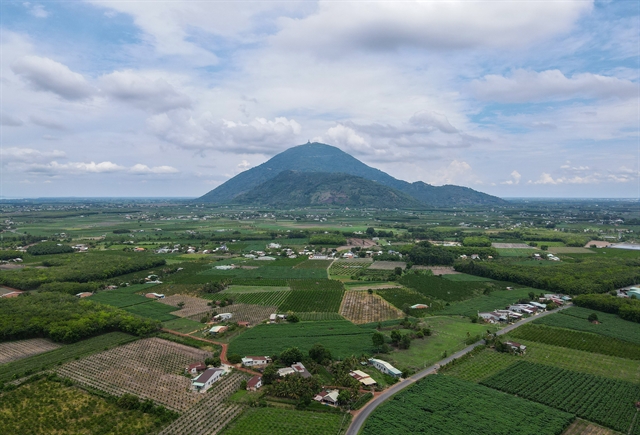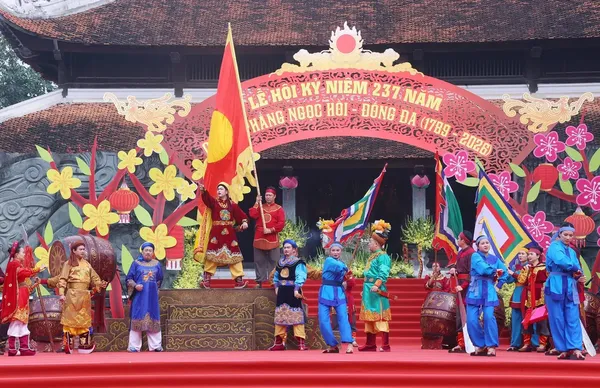 Society
Society

Many domestic enterprises are suffering serious losses or only fulfilling half of their annual plans due to the impact of the COVID-19 pandemic, but they are still managing to offer Tết (Lunar New Year) bonuses to their workers.

|
| End-of-year bonuses for workers for the upcoming Tết (Lunar New Year) will be lower than last year due to the impact of the COVID-19 pandemic. — Photo nld.com.vn |
HCM CITY — Many domestic enterprises are suffering serious losses or only fulfilling half of their annual plans due to the impact of the COVID-19 pandemic, but they are still managing to offer Tết (Lunar New Year) bonuses to their workers.
Ngọ Duy Hiểu, vice chairman of Việt Nam General Confederation of Labour (VGCL), said at a recent press conference that many businesses and employees were struggling to overcome difficulties amid the complex developments of the pandemic.
Local businesses are trying to find funds for Tết bonuses even though they have seen a sharp decline in revenue and profits this year.
Offering Tết annual bonuses helps to retain staff and deal with the current labour shortage caused by the fourth pandemic wave, he said.
The tourism sector has refocused its activities on the domestic market and is receiving international visitors in selected localities as part of a pilot programme, but many tourism-related businesses lack funds.
Many of them have had to gradually reduce their workforce and cut salaries, or even allow their employees to take a break from work as they cannot cover costs to maintain operations.
Phạm Quý Huy, director of the HCM City-based Kiwi Travel Trade and Tourism Co., Ltd, told Người Lao Động (Labourer) newspaper that the company had customers for about two months this year.
“A lot of difficulties exist in the field of tourism,” he said.
The company has maintained only about 30 per cent of office staff, while tour guides have had to switch to other industries such as real estate and insurance.
“We are trying to have Tết gifts together with small amounts of money for our employees who are sharing difficulties with the company,” he said.
Trần Thế Dũng, general director of Fiditour - Vietluxtour Travel Company in HCM City, said the company in previous years offered all employees a 13th month salary, Tết bonus and year-end party.
The company plans to have a gift with a small Tết bonus before the upcoming Tết holiday and “lì xì” or lucky money after Tết.
“This is our great effort to encourage employees who have accompanied the company to get through this tough period,” he said.
According to Đà Nẵng’s Tourism Association, about 10-15 per cent of tourism-related businesses have reopened but they have almost no guests and no revenue. Trying to retain staff and pay salaries is the main focus.
Vũ Quang Thành, deputy director of Hà Nội Job Service Centre, said employees at many enterprises said they were willing not to receive bonuses this year.
“The immediate objective is to maintain jobs and income for employees for the future development of the enterprises,” he said.
Nguyễn Thị Lan Hương, former director of the Institute of Labour, Science and Social Affairs under the Ministry of Labour, Invalids and Social Affairs, said the current law does not require employers to give a 13th-month payment for their employees for the Tết holiday.
Unless there is an agreement between the employer and the employee in a labour contract or a collective labour agreement about the 13th-month payment, the employer is not forced to pay this amount.
Many business fields will not give Tết bonuses due to the severe impacts of the COVID-19 pandemic, Hương said.
A representative of the Việt Nam Textile and Apparel Association (VITAS) said that all enterprises are rushing to complete year-end orders and the Tết bonus will depend on the sales and business performance of each enterprise until the end of the year. It could be cash, a gift or others.
The bonus level varies from year to year depending on the company’s performance.
Thân Đức Việt, general director of Garment 10 Joint Stock Company (Garco 10), said this year’s average monthly income of employees increased by 9 per cent compared to last year because the company supported employees facing difficulties due to the pandemic.
Although the company’s total revenue for 2021 is expected to grow, the profit is only equivalent to the previous year because of high costs for disease prevention and the “three on-site” production model.
“This year’s Tết bonus will be the same level as last year, about 1.5 months of salary, to motivate employees,” he said.
Meanwhile, Chairman of Hà Nội Taxi Association Nguyễn Công Hùng said that only 50 per cent of inter-provincial vehicles were operating and the remaining face financial difficulties so it's difficult for them to return to the market.
Many taxi firms have returned but have encountered difficulties as gasoline prices have increased.
"At this time every year, many firms announce Tết bonuses, but we are lucky to just maintain jobs for employees to just earn an income," he said.
Many companies said they would give smaller Tết bonuses but offer financial support and bonuses in order to retain employees after a tough year, according to the former minister of Labour, Invalids and Social Affairs Phạm Minh Huân.
Tourism, resort and passenger transport services are still facing tough times.
However, Tết bonuses will still occur in fields that have done well during the pandemic, such as finance, banking, securities, automobiles, healthcare, pharmaceuticals and e-commerce, Huân said. — VNS




